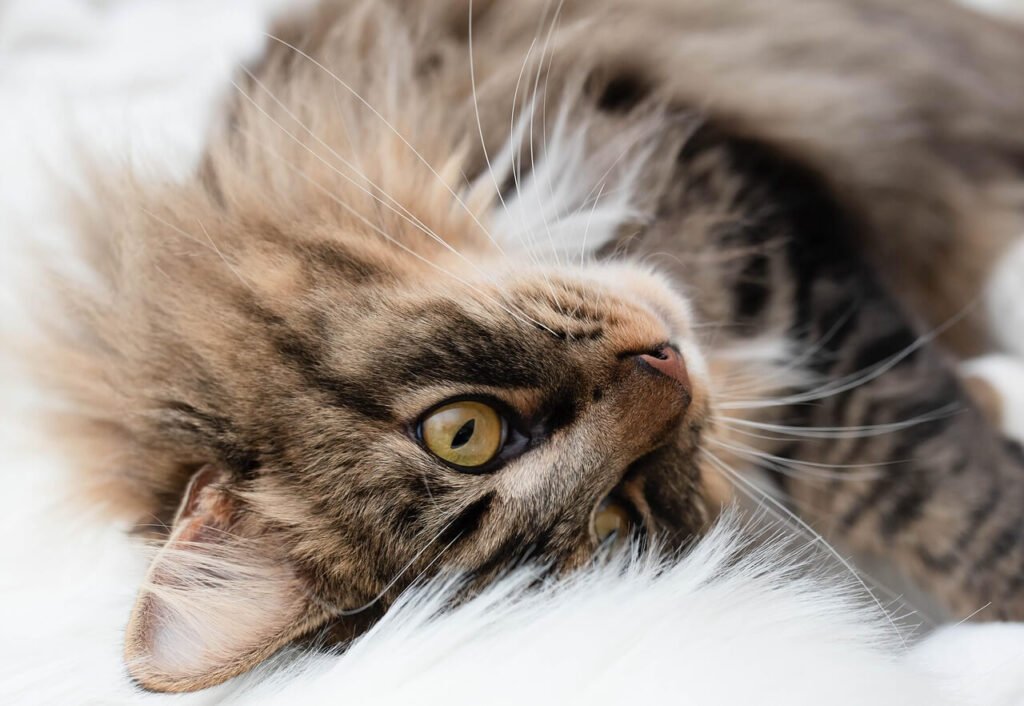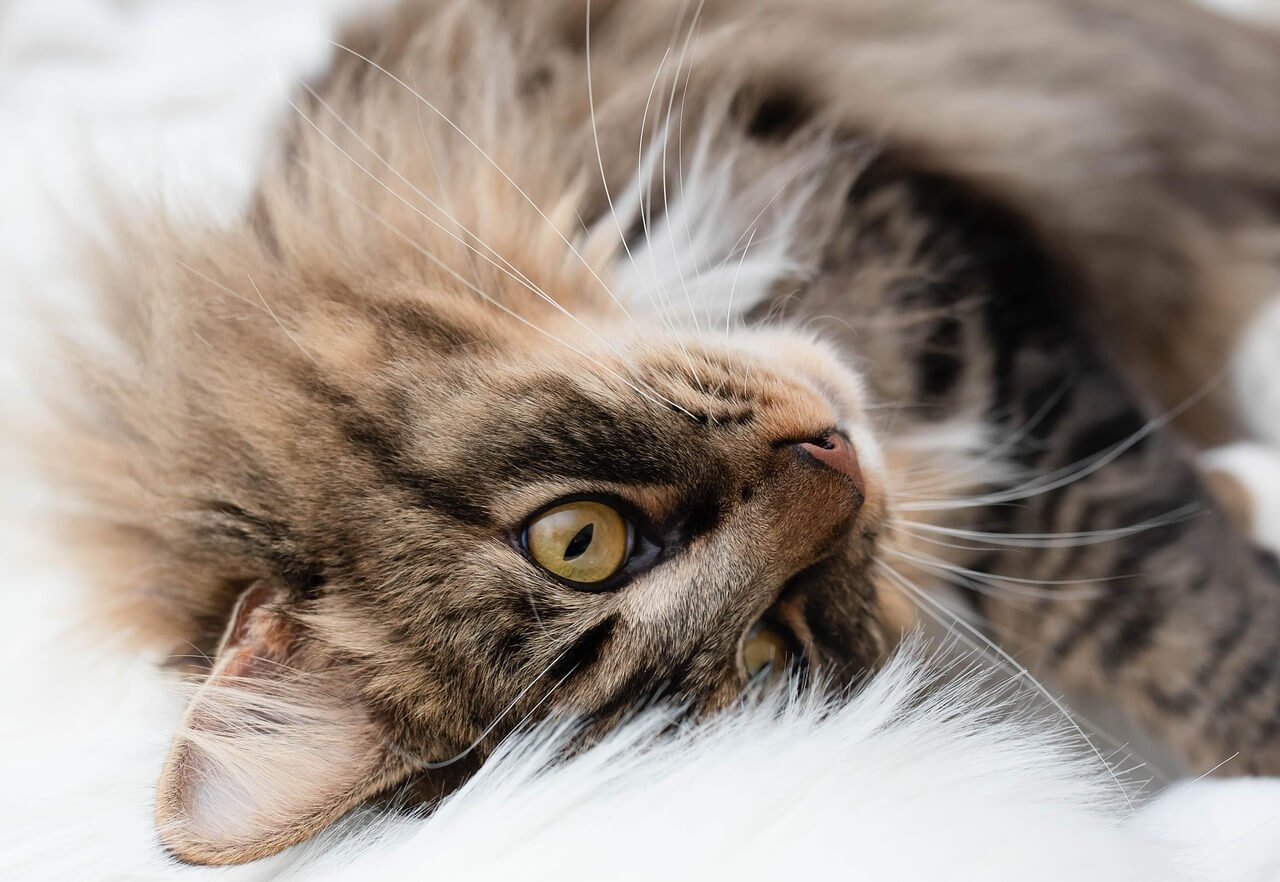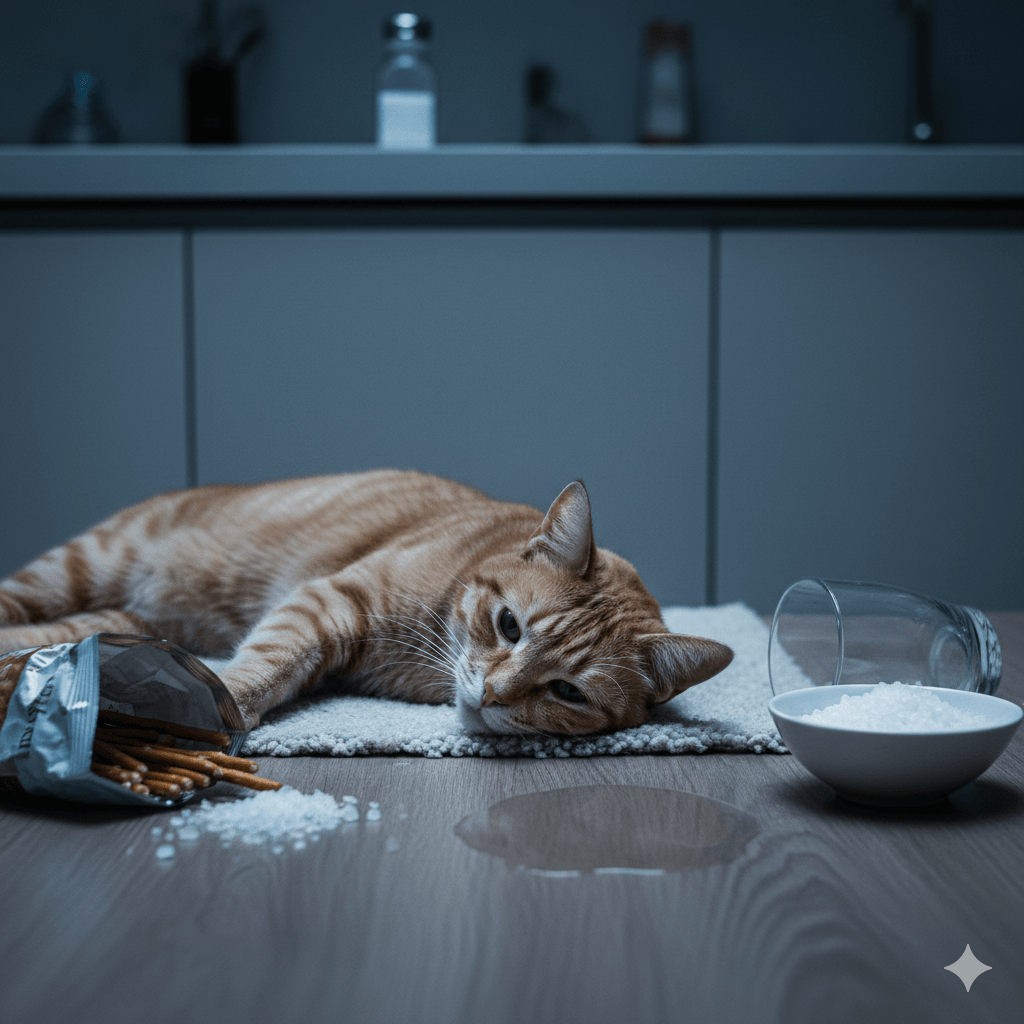Cat Swollen Nose: Causes, Symptoms, and Treatment Options
A swollen nose in cats can be alarming for any pet owner. While it might seem like a minor issue at first, a swollen nose can indicate a range of underlying health problems, from infections to allergies or even trauma. Cats rely heavily on their sense of smell, so any disruption to their nasal area can significantly impact their comfort and well-being. Understanding the potential causes, recognizing the symptoms early, and seeking appropriate treatment are essential steps to ensure your feline friend stays healthy and happy. In this guide, we’ll explore everything you need to know about cat swollen noses, including how to identify the problem and what actions to take.
Common Causes of a Swollen Nose in Cats
A swollen nose in cats can stem from various factors, ranging from mild irritations to more serious conditions. Identifying the root cause is crucial for effective treatment. Here are some common culprits:
Infections : Bacterial, viral, or fungal infections can lead to inflammation and swelling around the nasal area.
Allergies : Environmental allergens like pollen, dust, or cleaning products may trigger an allergic reaction, causing swelling.
Trauma or Injury : Scratches, bites, or blunt force injuries can result in localized swelling on the nose.
Foreign Objects : Grass seeds, dirt, or other small objects lodged in the nasal passages can cause irritation and swelling.
Underlying Health Conditions : Conditions like dental abscesses, tumors, or autoimmune diseases may manifest as a swollen nose.
Understanding these causes can help you better assess your cat’s condition and determine whether veterinary intervention is necessary.
Signs and Symptoms of a Swollen Nose in Cats
Recognizing the signs of a swollen nose early can help you address the issue promptly. Here are some symptoms to watch for:
Visible Swelling : The most obvious sign is puffiness or enlargement of the nasal area.
Discharge : Nasal discharge, whether clear, yellow, green, or bloody, often accompanies a swollen nose.
Sneezing or Sniffles : Persistent sneezing or difficulty breathing may indicate nasal irritation or blockage.
Lethargy or Loss of Appetite : These general symptoms could signal discomfort or pain related to the swelling.
Behavioral Changes : Increased aggression, hiding, or reluctance to be touched near the face may suggest discomfort.
If you notice any of these symptoms, it’s important to monitor your cat closely and consult a veterinarian if the condition worsens or persists.
Check this guide 👉Cat Swollen Chin: Best 7 Health Tips!
Check this guide 👉Cat Swollen Eye Treatment at Home: Best 7 Expert Tips!
Check this guide 👉Cat Swollen Lymph Nodes: Best 7 Health Tips!

Causes of Cat Swollen Nose | Possible Treatments |
|---|---|
Bacterial or viral infections | Antibiotics or antiviral medications prescribed by a vet |
Allergic reactions | Antihistamines or removal of allergens from the environment |
Trauma or injury | Cleaning the wound and monitoring for infection; vet care if severe |
Foreign objects in nasal passage | Removal by a veterinarian under sedation if necessary |
Dental issues or abscesses | Dental cleaning or extraction of infected teeth |
How to Care for a Cat with a Swollen Nose at Home
While professional veterinary care is often necessary, there are steps you can take at home to support your cat’s recovery. Here are some tips:
Keep the Area Clean : Gently clean the swollen area with a damp cloth to remove dirt or discharge.
Monitor for Changes : Keep an eye on the swelling and note any worsening symptoms, such as increased redness or pus.
Provide Comfort : Create a calm, quiet space for your cat to rest and recover without stress.
Encourage Hydration : Ensure your cat has access to fresh water to stay hydrated, which supports overall health.
Avoid Self-Medication : Never give your cat human medications like ibuprofen or antihistamines without consulting a vet.
Taking these precautions can help alleviate discomfort while you prepare for a vet visit if needed.
When to Seek Veterinary Care for a Swollen Nose
While some cases of a swollen nose may resolve on their own, others require immediate attention. Here are scenarios where you should consult a veterinarian:
Persistent Swelling : If the swelling doesn’t improve within 24-48 hours, it’s time to see a vet.
Difficulty Breathing : Labored breathing or wheezing indicates a potentially serious issue that needs urgent care.
Signs of Pain : Excessive pawing at the nose, vocalizing, or avoiding touch suggests significant discomfort.
Fever or Lethargy : A high temperature or extreme tiredness may point to a systemic infection or illness.
Unexplained Bleeding : Bleeding from the nose or surrounding area requires immediate veterinary evaluation.
Prompt action ensures your cat receives the care they need to prevent complications and speed up recovery.
Proactive Steps to Keep Your Cat’s Nose Healthy
Preventing a swollen nose in cats involves creating a safe and healthy environment while addressing potential risks early. Here are some preventive measures you can take:
Regular Vet Check-Ups : Schedule routine veterinary visits to catch any underlying health issues before they escalate.
Maintain a Clean Environment : Keep your home free of dust, mold, and strong chemicals that could irritate your cat’s nasal passages.
Monitor Playtime : Supervise interactions with other animals to prevent bites or scratches around the face.
Inspect for Foreign Objects : Regularly check your cat’s environment for small items like grass seeds or debris that could lodge in their nose.
Provide a Balanced Diet : A nutritious diet supports your cat’s immune system, reducing the risk of infections that could lead to swelling.
By taking these proactive steps, you can minimize the chances of your cat developing a swollen nose and ensure their overall well-being.
Clarifying Myths to Better Understand the Condition
There are several misconceptions about why cats develop swollen noses that can lead to confusion or improper care. By addressing these myths, you can make more informed decisions about your cat’s health.
Myth: It’s Always Caused by Allergies : While allergies can cause swelling, infections, trauma, or foreign objects are equally common culprits.
Myth: Cats Can’t Get Nasal Infections : Cats are just as susceptible to bacterial, viral, or fungal infections as humans and other animals.
Myth: A Swollen Nose Isn’t Serious : Even minor swelling can indicate an underlying issue that requires attention, so it’s best not to ignore it.
Myth: Human Medications Are Safe for Cats : Many over-the-counter medications are toxic to cats and should never be used without vet approval.
Myth: Swelling Will Resolve on Its Own : Some cases may worsen without treatment, so professional advice is often necessary.
Understanding the truth behind these misconceptions ensures you provide the best care for your cat.
Boosting Immunity to Reduce Health Risks
A strong immune system can help your cat fight off infections and reduce the likelihood of conditions like a swollen nose. Here are some ways to support your cat’s immune health:
Provide High-Quality Nutrition : Feed your cat a diet rich in essential vitamins, minerals, and antioxidants to strengthen their immune response.
Ensure Adequate Hydration : Encourage water intake to keep mucous membranes hydrated and flush out toxins.
Minimize Stress : Create a calm environment to reduce stress, which can weaken the immune system over time.
Offer Regular Exercise : Engage your cat in play to promote physical fitness and boost their overall health.
Supplement Wisely : Consult your vet about supplements like omega-3 fatty acids or probiotics that may enhance immune function.
By supporting your cat’s immune system, you can help them stay resilient against illnesses that might lead to a swollen nose or other health issues.
Frequently Asked Questions About Cat Swollen Noses
Can a swollen nose in cats go away on its own?
Mild cases caused by minor irritations may resolve independently, but persistent or severe swelling requires veterinary attention.
Is a swollen nose in cats always serious?
Not always, but it can indicate underlying health issues that need addressing, so it’s best to err on the side of caution.
How can I tell if my cat has an infection?
Look for signs like pus, foul-smelling discharge, fever, or lethargy, which often accompany infections.
Can allergies cause a swollen nose in cats?
Yes, environmental or food allergies can lead to nasal swelling, sneezing, or discharge.
What should I do if my cat has something stuck in their nose?
Avoid attempting removal yourself; instead, take your cat to the vet for safe and proper extraction.
Prioritize Your Cat’s Health When Dealing with a Swollen Nose
A swollen nose in cats may seem like a minor issue, but it can sometimes signal a more serious underlying condition. By staying vigilant, recognizing the symptoms early, and seeking veterinary care when necessary, you can ensure your feline companion receives the attention they need. Whether it’s addressing an infection, removing a foreign object, or managing allergies, timely intervention is key to keeping your cat comfortable and healthy. With love, patience, and proper care, you can help your furry friend overcome this challenge and return to their playful, happy self.
Poodle Water Dog: Best 7 Expert Tips! – Discover how Poodles excel in water activities, from swimming to training, and unlock their aquatic potential today.
Salt Poisoning in Cats: Best 7 Expert Tips! – Learn the dangers of salt toxicity, spot symptoms early, and discover how to keep your cat safe from this serious health risk.
Salt Poisoning in Dogs: Best 7 Expert Tips! – Learn the dangers of salt toxicity, recognize symptoms, and discover life-saving steps to protect your dog.
Can Too Much CBD Kill a Cat? Best 7 Expert Tips! – Discover the risks, safe dosages, and signs of CBD toxicity to keep your cat safe and healthy.





